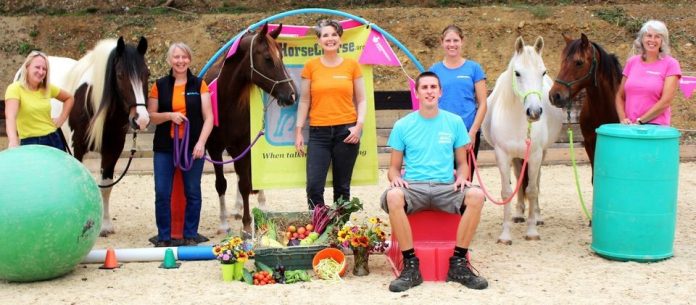Ann Hemingway, Professor of Public Health at Bournemouth University, Dept Medical Science & Public Health, discusses how Equine Assisted Interventions can enhance mental health and wellbeing
Globally there is increasing interest in maintaining and enhancing mental health and well-being during and in recovery from the COVID-19 global pandemic. This paper will discuss the emerging area of equine assisted interventions which bring together horses and humans, prey animal and predator to learn and interact together. The evidence base is emerging for this area rather than established and this paper will discuss current issues related to innovation, evaluation and the hierarchy of evidence.
Different types of Equine Assisted Interventions
The equine assisted intervention offer globally includes several different specialities these include interventions for individuals living with disabilities (riding for the disabled), equine assisted psychotherapy and equine assisted social work. In addition, primarily for young people experiencing mental health and behavioural issues equine assisted interventions are offered which teach the youngsters to communicate with and/or care for horses. These interventions may also take referrals from adults again primarily experiencing mental health and behavioural issues from agencies such as drug and alcohol, offending and mental health services. Participants in these interventions have predominantly not benefitted from traditional talk-based interventions.
Building the evidence base for Equine Assisted Interventions
However, as our health, social care and educational services have become more evidence based in their commissioning of services the ability of charities providing these services to evaluate and provide evidence of their impact is becoming an urgent requirement. The evidence base thus far for equine assisted interventions consists of primarily qualitative and small quantitative studies, including many masters and PhD thesis with a limited number of controlled and randomised studies. Key in this is that comparison groups for individuals who are not engaging with talk-based interventions are hard to find as traditionally this group have not accessed services as a result of their complex issues.
Having worked with two of these charities (http://www.thehorsecourse.org/ and https://www.horseworld.org.uk/) evaluating what they offer and exploring what the mechanism of action may be in some detail and starting to build a theory of change (Hemingway et al., 2015, Hemingway et al., 2019, Hemingway et al., 2019) it is apparent that there are real practical issues associated with current research funding available for such evaluation. The first of which is availability. In the U.S. there has been a strand of their National Institute for Health research funding which focuses on animal-assisted interventions, whereby equine assisted researchers and interventions could come together to gain funding to develop knowledge of effectiveness and impact on their clients. However elsewhere there is no such resource and gaining funding from national research funders interested in mental health and behavioural issues is problematic for the following reasons.
Equine Assisted Interventions and the gold standard of evidence
Randomised-controlled trials (RCT) are seen as the ‘gold standard’ for health-related intervention evaluation they require a relatively large sample of a narrow and specific cohort of individuals; often with a formal medical diagnosis and proof of health outcomes already prior to any application for research funding.
Such cohort criteria are difficult to achieve in a small or medium-sized charity who may take a wide range of individuals with similar primarily behavioural problems who particularly in the UK may not have been able to access services to gain a formal ‘medical’ diagnosis particularly through the Child and Adolescent Mental Health Services, CAMHS. As waiting lists are long and for some individual youngsters and families the formal processes required to engage are not conducive to enabling diagnosis. Also not funding initial exploratory studies means that getting to the stage of providing enough evidence to show health outcomes means that the whole process of innovation is stalled.
The development of these charities, led by local government who work with socially excluded individuals and families who have suffered disproportionately in terms of job losses, insecurity and isolation through COVID, could be a model for the future. In local areas currently repeated referrals from social workers, schools, pupil exclusion units, mental health services (such as CAMHS), health care practitioners and drug and alcohol services amongst others; mean that those referring are seeing repeated positive outcomes and supporting the development of the charities within local communities often through formal commissioning of services (Hemingway 2020).
Blocking innovation
However, the end result of this lack of research funding for innovation means that currently there are more systematic reviews and meta-analysis of equine assisted interventions evaluated so far than there are controlled or randomised studies (Boss et al., 2019, Trzmiel et al., 2019, Kinney et al., 2019). Innovation is urgently required to support our mental health and well-being during these difficult and unprecedented times we need to look beyond our traditionally acceptable research methodologies and routes for funding to enable genuine innovation to occur.
Currently, this area is being developed from the bottom up funded by local community charities and localised commissioning by those who are experiencing the impact. We could be using these resources to enable our recovery from COVID globally if we could evaluate what the outcomes are and how they could be most usefully utilised. However, at the moment we are stuck. Confined within a medical model of research funding which is not enabling innovation and engagement in the emerging community and charity led area of equine assisted interventions focused on mental health and behavioural outcomes.
*Please note: This is a commercial profile











